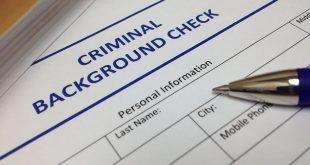 When you owe money, it can seem impossible that you will ever be able to pay off your debt. Whether you have got into debt through bad luck or overspending, the prospect of being able to clear those debts can seem impossible. But many people have successfully paid off substantial debts, and have done so by approaching it sensibly and facing up to the situation. If you’re looking for debt solutions, here are some tips to help you work to pay off your debt.
When you owe money, it can seem impossible that you will ever be able to pay off your debt. Whether you have got into debt through bad luck or overspending, the prospect of being able to clear those debts can seem impossible. But many people have successfully paid off substantial debts, and have done so by approaching it sensibly and facing up to the situation. If you’re looking for debt solutions, here are some tips to help you work to pay off your debt.
1- Face up to it
The first step to pay off your debt is to acknowledge that it exists. Many people go into denial and hope that somehow it will all go away. Maybe they will win the lottery, or receive an inheritance! But you are not going to clear your debt this way. Instead, you must face up to the fact that you are going to have to work hard to pay it off.
2- Don’t increase it
When you already owe money, it can seem as though adding to it won’t make any difference. It will – by making things worse. You have to stop spending. Increasing your debt will extend the time it takes to clear, and add even more interest.
3- Build an emergency fund
An emergency fund may sound counterintuitive if you’re trying to get out of debt since you could be using that money to pay off your debt instead of sticking it in a savings account. But, an emergency fund can actually keep you from creating more debt by providing you with a safety net you can use instead of a credit card when an emergency comes up. The ideal emergency fund is six to twelve months of living expenses, but focus on building up at least 1 month in the short-term.
4- Analyse your spendings
You’re in debt because you spent money you didn’t have. Avoiding more debt starts with knowing what you are spending your money on. Each day for one month (at least), write down every penny you spend, no matter how small.
Categorize your monthly expenses into logical groups of “Must have” (food, rent, medicine…), “Should have” (new clothes, gym membership…), and “Like to have” (magazine subscriptions, newspaper, coffee with friends…).
Write down the amount you spent in each category of spending last month as you budget for spending for the next month. You’re going to be able to see areas where you might be able to cut back.
5- Freeze Your Credit Cards
Stop using credit cards if you have debt. Start carrying cash instead. Stick to the budget you created and only buy what you can pay for with cash.
Credit cards have high interest rates. The only people who should carry credit cards are those who can avoid the temptation to overspend. If you think you may buckle to temptation, remove credit cards from the picture entirely. Leave your cards at home. Better yet, freeze your credit cards in a block of ice so you can’t use it on impulse.
6- Prioritise
When you start the process of paying off your debts, it’s important to put them in order of priority. First, you should pay off anything that could get you into legal trouble or put your home at risk. After that, debts with higher rates of interest should be dealt with, as the interest on those will accumulate more quickly.
7- Boost payment
The more money you put towards paying off a debt, the faster it will be dealt with. Paying only the minimum amount means that it will take years. So boost payments in any way you can. This could include income from a second job. Do anything that will bring in an income. If you get an unexpected windfall, even a small one, don’t be tempted to waste it – use it to bring down the total that you owe.
8- Ask your creditor for a lower interest rate
Higher interest rates keep you in debt longer because so much of your payment goes toward the monthly interest charge and not toward your actual balance. Ask your credit card issuers to lower your interest rate. Often, customers with good payment history can negotiate lower rates.
9- Debt snowball
The “debt snowball” is a well-known approach among those who deal with people in debt. Let’s say you owe money on three credit cards. First, you pay off the one with the highest interest rate at $200 a month, for example. Once that’s paid off, you put that $200 towards the next highest card, which will be paid off faster because of the lower interest. Finally, the same happens with the third card.
10- Advice
You don’t need to feel alone when you are in debt. There are many sources of advice out there to help people in your situation. Look for organisations that offer free advice, such as debt charities. There is also an enormous amount of information on the internet that can help you.
